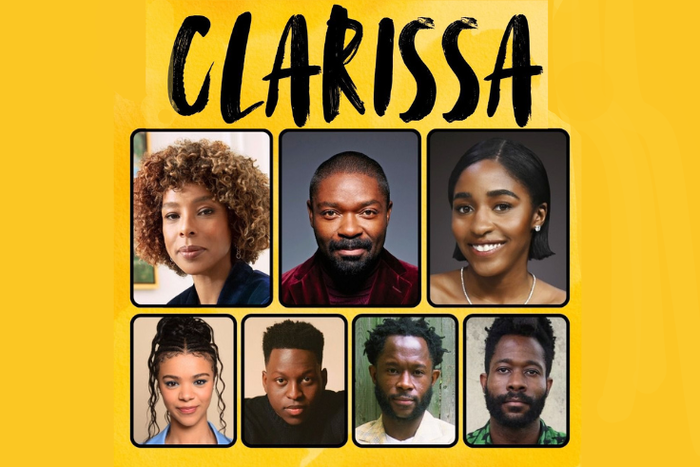Showbiz
Nigeria, UK Launch Creative Industries Technical Working Group

By Adedapo Adesanya
The United Kingdom and Nigeria have officially launched the Creative Industries Technical Working Group to deepen bilateral ties and create a robust framework for growth within the creative sectors of both nations.
According to a statement on Tuesday, the launch of this Working Group and a match-making event for UK-Nigeria creatives industries leaders in London represents a milestone in the UK-Nigeria relationship, designed to boost innovation, cross-border creative collaborations, and drive sustainable economic growth and development.
The events provided a dynamic platform to explore new opportunities and form commercial alliances within key creative subsectors such as film and TV, music, fashion and design, architecture, advertising, and gaming.
By prioritising collaboration and cultural exchange, the initiative is poised to foster long-term growth, enhance job creation, and unlock new pathways for creativity and innovation in both countries.
The statement added that a terms of Reference and joint work plan for 2025 were also agreed upon to guide the Group’s focus and efforts.
Speaking on the significance of the launch, Ms Florence Eshalomi MP, the UK’s Trade Envoy to Nigeria and Co-Chair of the UK-NG Creatives Technical Working Group, remarked that, “Our nations share a rich cultural bond and a deep belief in the transformative power of creativity, through music, film, fashion, and arts.
“This initiative, rooted in our landmark Enhanced Trade & Investment Partnerships (ETIP), will drive stronger trade ties, foster deeper collaboration, and unlock the full potential of our creative industries,” adding that, “By enhancing market access and investing in skills, we are opening doors to new opportunities that will create jobs and boost economic growth in the UK and in Nigeria.”
Emphasising the need for deeper creative and cultural ties, Mr Obi Asika, Director General of the National Council for Arts and Culture and Co-Chair of the UK-NG Creatives Technical Working Group in Nigeria, added “Nigeria’s creative economy is a global force, driven by our storytellers, musicians, designers, and digital innovators.
“From Nollywood to Afrobeats, fashion to gaming, our industries are reshaping global culture and commerce. However, to unlock the full potential of this sector, we need strategic investment and support not just in talent, but in the institutions and infrastructure that will sustain long-term growth.”
Representing Mr Asika from the Nigerian side, Prince Baba Agba, Special Assistant to the President of Nigeria on Creativity, underscored the importance of leveraging UK expertise for impactful collaborations.
“The UK’s creative industries stand as a global benchmark for institutional excellence, market distribution, and innovation. We are eager to tap into your expertise for meaningful partnerships. This Working Group isn’t just about discussions – it’s about taking concrete actions that will yield tangible outcomes for creators, businesses, and industry stakeholders on both sides,” he noted.
Also speaking on behalf of the music industry, Mr Adedayo Ayoade, Product Lead at Gbedu Labs, said, “The future of Nigeria’s music industry lies in live experiences, innovation, and global collaborations. The launch of the Creative Industries Technical Working Group, under the ETIP framework, represents a significant first step towards bridging cultures and amplifying the voices of the next generation.”
Showbiz
MTF’s 2023 Best Graduating Student Heads to Italy’s New York Film Academy

By Aduragbemi Omiyale
The 2023 Best Graduating Student of MultiChoice Talent Factory (MTF), Mr Oluwasegun Ogundeyi, is on his way to Italy to attend the New York Film Academy in Florence.
While at the academy, the filmmaker will hone his skills and be exposed to the latest innovations in the creative industry and meet others from across the globe.
His acceptance to the New York Film Academy’s Florence campus reflects not only personal advancement but also the continued success of MTF’s global training pipeline.
Through its partnership-driven approach, MTF continues to create pathways that position African filmmakers for international relevance while keeping their storytelling rooted in authentic local perspectives.
The fully funded scholarship provided by MTF marks a significant milestone in a career already defined by versatility, discipline, and award-winning storytelling.
The scholarship is part of an ongoing partnership between MTF and the New York Film Academy, designed to strengthen global exposure for emerging African filmmakers while building meaningful creative and industry connections between Nollywood and Hollywood.
“Storytelling is connection. It is expression, impact, and community. My mission is to tell African stories that are nuanced, human, and real, stories that remind us of who we are,” Mr Ogundeyi, who is a director, cinematographer, and storyteller, stated.
Since his time at MTF, Mr Ogundeyi has steadily built a portfolio that demonstrates both range and creative leadership. His directorial debut, Her Dark Past, earned top recognition by winning the MTF category at the 2024 Africa Magic Viewers’ Choice Awards (AMVCA), validating the promise he displayed during his training at MTF.
As Director of Photography on the short film Threshold, he contributed to a project that secured selections at both the Ibadan Indie Film Awards and the Malabo International Film Festival 2025.
He directed Bridging Hope, a documentary produced for Drug Aid Africa, demonstrating his ability to craft compelling narratives for social impact.
His commercial work includes directing the Máadán Lipgloss launch campaign, bringing cinematic sensibility to branded content. Currently, his cinematography work on Transparent Boy is in post-production, with festival submissions anticipated.
Beyond individual projects, his MTF experience yielded lasting professional partnerships. In June 2024, he co-founded NINE NINE Productions Limited with a fellow MTF graduate, transforming their collaboration on Threshold into a sustainable creative enterprise.
Showbiz
Afreximbank-Backed CCInc Invests in Nigerian Feature Film Clarissa

By Adedapo Adesanya
The intellectual property investment subsidiary backed by Afreximbank’s Fund for Export Development in Africa (FEDA), CANEX Creations Incorporated (CCInc), has announced an investment in the feature film Clarissa, a Nigerian-produced drama directed by twin filmmakers, Arie and Chuko Esiri.
A contemporary reimagining of Virginia Woolf’s novel, relocated to Lagos, Clarissa was shot on 35mm in Lagos and Delta States. The film follows society woman Clarissa as she prepares to host a party at her home, only to encounter once-intimate friends from her youth. Over the course of a single night, memories of intricate relationships, passionate love, hidden desires, and lost aspirations give rise to a bittersweet reckoning.
The film has been acquired for worldwide distribution by NEON, which will oversee theatrical release in the United States and international markets, with NEON International handling foreign sales.
Clarissa features an acclaimed ensemble cast including Sophie Okonedo (Academy Award and Emmy Award nominee), David Oyelowo (Golden Globe and BAFTA nominee), Emmy Award winner Ayo Edebiri, alongside India Amarteifio (Bridgerton), Toheeb Jimoh (Ted Lasso), Nikki Amuka-Bird (Knock at the Cabin), and a broader cast of distinguished performers.
The film is written, directed, and produced by Arie and Chuko Esiri, whose debut feature Eyimofe (This Is My Desire) premiered at the Berlinale, won multiple African Movie Academy Awards, and was subsequently released by Janus Films before being selected for the Criterion Collection, a rare distinction that signals enduring artistic significance.
The Esiri brothers produce Clarissa alongside Theresa Park (Per Capita Productions) and Nicholas Weinstock (Invention Studios), with co-producers Nina Gold and Thomas Bassett. Executive producers include Sophie Okonedo, Dolly Omodolapo Kola-Balogun, Osahon Okunbo, and Jason Reif.
Commenting on the investment, Mr Osahon Akpata, Chief Executive Officer of CCInc. said, “Clarissa exemplifies the type of globally resonant, IP-driven storytelling that CANEX Creations Inc (CCInc) was established to support. The film combines literary heritage, world-class filmmaking, and African production capacity, while remaining firmly rooted on the continent. Its acquisition by NEON validates both the creative ambition of the filmmakers and the viability of Africa-backed financing structures for internationally scalable film content.”
Reflecting on the film’s creative vision, Mr Chuko Esiri, writer, director and producer, said, “From the beginning, it was important to us that Clarissa be both rooted and resourced on the continent where it is set. Having African institutions back a film of this scale reflects a growing confidence that our stories can be produced from within.
“Clarissa is a story centred on time and memory, and in bringing it to life, we chose to shoot on 35mm in the hope it will first feel, then stand next to the great films of modern cinema”.
Production financing for filming in Nigeria was provided entirely by Africa-based institutions, led by CCInc. alongside MBO Capital, underscoring the growing capacity of African capital to support globally competitive film projects.
The acquisition was negotiated by NEON’s Kate Gondwe, with UTA Independent Film Group representing the filmmakers.
According to a statement, CCInc. said Clarissa marks its continued commitment to investing in high-quality Global Africa intellectual property with clear pathways to international markets, in line with its mandate to catalyse export-ready creative assets across film, television, music, fashion, and other IP-intensive sectors.
Showbiz
Spotify Reports 163.5% Average Streaming Growth in Nigeria

By Adedapo Adesanya
Spotify says music streaming in Nigeria has grown at an average rate of 163.5 per cent, underscoring the speed at which the country has emerged as a global streaming force since it launched here in 2021.
In a statement, the music streaming company reported triple-digit year-on-year growth in its early years and sustained momentum through 2025.
The platform, which entered the Nigerian market in February 2021, described the journey as one marked by rapid cultural acceleration.
Spotify said at the heart of that growth was Afrobeats, which recorded a 5,022 per cent increase in streams locally between 2021 and 2025.
It added that other genres also witnessed remarkable expansion. According to the platform, Amapiano surged by 10,330 per cent; Gospel and Praise grew by 5,499 per cent; Hip-hop and Rap rose by 3,020 per cent; while R&B climbed by 2,602 per cent.
Spotify further said language had become another growth engine, with indigenous-language listening increasing by 554 per cent in 2024 and 87 per cent in 2025 within Nigeria.
Globally, indigenous-language streams rose by 141 per cent in 2024 and 41 per cent in 2025, reflecting what the company described as a growing appetite for local-language storytelling and sound.
According to Spotify, listening habits reflected global curiosity from day one. The first track streamed in Nigeria at launch was “到此為止” by Shiga Lin, reinforcing the platform’s view that Nigerian users are eclectic and open to discovery.
Over the five-year period, the most-streamed artists in Nigeria include Burna Boy, Davido, Asake, Wizkid and Seyi Vibez.
Among the most replayed songs are ‘Remember’ and ‘Lonely At The Top’ by Asake; ‘Kese (Dance)’ by Wizkid; ‘Doha’ by Seyi Vibez; and ‘With You’ by Davido featuring Omah Lay.
The platform said the number of Nigerian artists on Spotify has grown by 158 per cent since launch, while users have created more than 25 million playlists within the period.
According to the company, in 2025 alone, Nigeria recorded over 1.4 million play hours on the platform.
Spotify also noted that podcast consumption is expanding, with more than 59 billion total podcast hours streamed since its launch.
The platform added that user behaviour reflects a young and adventurous market, with the average listener aged 26. In recent months, Nigerians streamed an average of 150 different artists, which Spotify described as evidence of a discovery-driven audience.
-

 Feature/OPED6 years ago
Feature/OPED6 years agoDavos was Different this year
-
Travel/Tourism10 years ago
Lagos Seals Western Lodge Hotel In Ikorodu
-

 Showbiz3 years ago
Showbiz3 years agoEstranged Lover Releases Videos of Empress Njamah Bathing
-

 Banking8 years ago
Banking8 years agoSort Codes of GTBank Branches in Nigeria
-

 Economy3 years ago
Economy3 years agoSubsidy Removal: CNG at N130 Per Litre Cheaper Than Petrol—IPMAN
-

 Banking3 years ago
Banking3 years agoSort Codes of UBA Branches in Nigeria
-

 Banking3 years ago
Banking3 years agoFirst Bank Announces Planned Downtime
-

 Sports3 years ago
Sports3 years agoHighest Paid Nigerian Footballer – How Much Do Nigerian Footballers Earn













